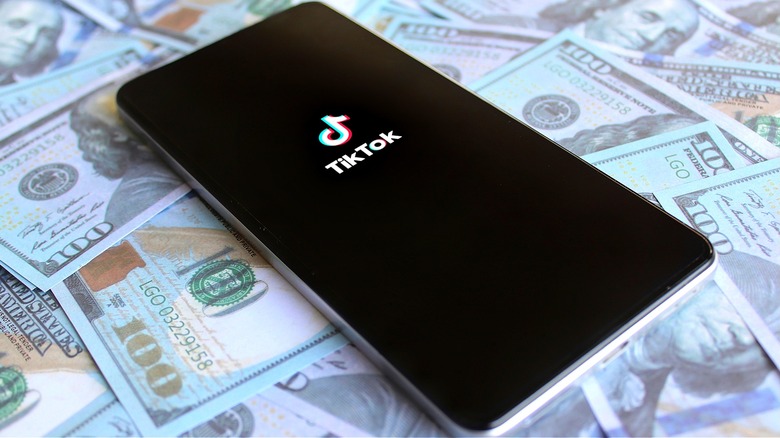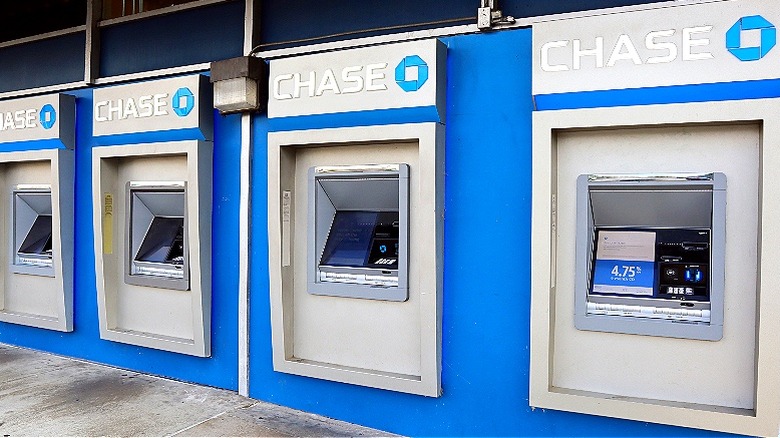Financial Coach Names The Worst Money Advice From TikTok
Given the financial situation of many Americans today (due to housing prices, inflation, and hiked insurance premiums), it's no wonder that many have turned to social media, such as TikTok, seeking financial advice and tips in an effort to save and/or earn more money. However, while an influencer's tip might seem like a good idea, a lot of this content is simply bad advice (for instance, some of these social media schemes could get you audited). Plus, according to the FBI's Internet Crime Complaint Center, a vast majority of fraud scams in 2023 utilized social media to establish relationships with would-be victims. While not all TikTok financial advice is necessarily bad (or necessarily a scam), it's important to stay vigilant when it comes to taking online financial advice.
On this particular subject, we spoke with Alaina Fingal, a financial organizer and certified financial coach, accountant, and author, asking her for the top three worst pieces of financial advice she's seen online, specifically on TikTok. For starters, Fingal explained, "There is no quick path to wealth. You will need to build knowledge and skill in any area you decide to pursue, but the advice on TikTok can make it seem as though making money is super easy through dropshipping, buying rental property, flipping houses, writing an ebook, or selling a course."
Long story short, when it comes to money, Fingal advises avoiding any get-rich-quick schemes and concepts you might come across on social media platforms like TikTok. With that in mind, let's dive into a few more specific bad pieces of money advice she warns consumers to stay away from.
Taking advantage of the Chase Bank 'glitch'
A specific bad piece of advice that Alaina Fingal warns against centers on a popular Chase bank rumor. Fingal told us, "There was a viral video on TikTok in early September telling people that there was a systemwide glitch with Chase and you are able to deposit a false check in the ATM and withdraw the money." While Chase didn't disclose just how much money was lost during the short-lived fad, it seems as though rebranding this fraudulent activity by calling it a "glitch" is what convinced so many people to participate.
Fingal further explained that, "the video stated that people would be able to cheat the system and take out a large sum of cash before the check bounced. This video was basically advising people to take out money that doesn't belong to them, and by definition this video was inviting users to commit check fraud." It's also worth noting that cases of check fraud have been increasing significantly in the last several years, even without TikTok's help.
According to the U.S. Department of the Treasury's Financial Crimes Enforcement Network, the number of check fraud reports has exploded. In 2021, financial institutions reported a 23% increase over the year prior, with over 350,000 suspicious activity reports (or SARs), however, in 2022, that number almost doubled, with over 680,000 SARs reported for check fraud. Remember, banks can and will bust criminals, so participating in check fraud can not only result in fines/fees from your bank but also potentially legal action and criminal charges.
Investing in the same stock as the rich
It's easy to understand why people think emulating the wealthy could help them, in turn, become wealthy themselves. Financially focused TikToks might even recommend it. However, expecting the same results without having the same market knowledge or bank balance could prove detrimental. According to Alaina Fingal, "I have seen many videos advising users to just invest in the same stock as rich people and you can expect the same results. These videos will usually encourage people to invest in companies like Amazon or Tesla because successful people invest in them."
However, there's no guarantee you'll be successful. There are many considerations as to why a specific wealthy person's investment portfolio might not work for someone else. Fingal told us, "People with a lot of disposable income are usually taking bigger risks [...] and small setbacks or losses may not have a big impact on their finances. However, a small setback could possibly ruin others." This can be especially true for low-income households or those struggling to build their savings.
Given that 28% of Americans reported having less than $1,000 in savings (according to Forbes), taking a big financial risk with no guarantee of success could lead to a concerning level of financial fallout. Investing in an emergency fund, prioritizing retirement, and paying off debts can ultimately be the smarter, if less exciting, financial path. Said Fingal, "We can't just blindly follow what rich people do, we have to make the decisions that are best for our personal finances."


